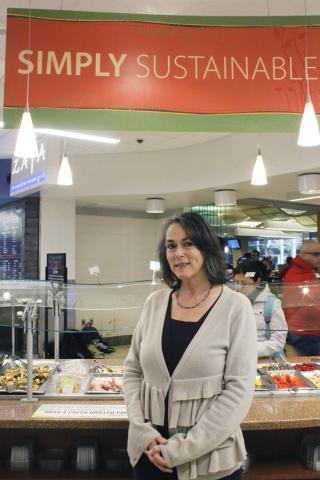event
Rebecca Watts Hull PhD Defense
Primary tabs
Today at 2pm in the Mel Rebecca Watts Hull will be presenting her thesis titled "Winning Real Food on Campus: The Role of Opportunity Structures, Strategic Capacity, and Identity in the Outcomes of Student Campaigns."
Abstract
U.S. college campuses have been important sites of protest and social movement activity since the Civil Rights and New Left movements of the 1960s. Despite the significance of college campuses as sites of mobilization and social protest, student activism has received relatively little attention from social movement scholars. Further, very few studies of campus activism examine their outcomes or why some groups “win” while others “lose.” This dissertation addresses these gaps by investigating the impact of Real Food Challenge (RFC), a U.S. social movement organization (SMO) supporting student campaigns to shift campus dining toward sources that meet its multifaceted criteria for sustainability, while also building a youth movement to transform the global food system.
RFC campaign outcomes vary widely; some have won institutional commitments to reach 20 percent “real food” by 2020, while others have made little progress toward that objective. This study uses quantitative analysis to identify contextual factors that support the ability of student Real Food activists to win their objectives. An in-depth, qualitative case comparison of four RFC campaigns examines contextual, organizational, and strategic variables shaping progress and outcomes in this emerging field of student activism.
The study’s findings are relevant to social movement scholarship and the work of federated SMOs. The national quantitative analysis reveals a modest regional advantage for schools in Pacific Coast and Northeastern states. Related data from the qualitative study suggest a complex relationship between political context, university orientation toward conventional agribusiness, and administrative response to RFC campaigns. In addition to geo-political context, the qualitative study suggests that openness to student petitions and campus culture also influence administrative response to RFC activism. Collective identity, campaign movement priorities, and strategic choices of activists, in relation to contextual variables, also significantly influence student progress toward winning “real food.” The results suggest the significance of tactical and frame alignment, supported by flexibility and strategic capacity, for effective student activism. The study also identifies ways that federated, campus-based SMOs can facilitate greater strategic capacity within campaigns to enhance effectiveness.
The Committee Members are:
Dr. Bill Winders, School of History, Technology and Society, Georgia Tech
Dr. Steve Usselman, School of History, Technology and Society, Georgia Tech
Dr. Allen Hyde, School of History, Technology and Society, Georgia Tech
Dr. Kate Pride Brown, School of History, Technology and Society, Georgia Tech
Dr. Justin Biddle, School of Public Policy, Georgia Tech
Groups
Status
- Workflow status: Published
- Created by: Kayleigh Haskin
- Created: 10/03/2018
- Modified By: Amy D'Unger
- Modified: 10/03/2018
Categories
Keywords
Target Audience

